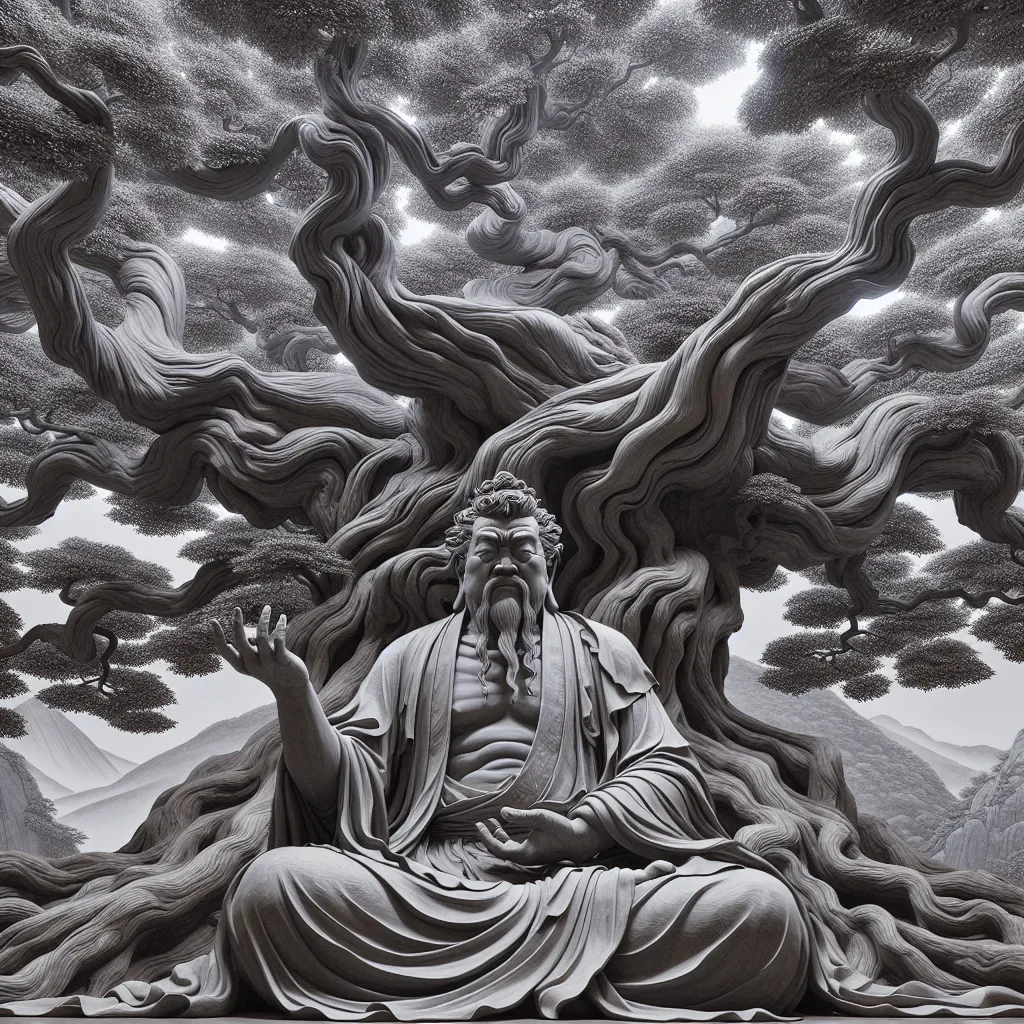
- Published on
- Authors

- Name
- You
The Teachings of Bodhidharma: The Founder of Zen Buddhism
Zen Buddhism, an intentional blend of rigorous meditation and spontaneous insight, traces its roots to a legendary figure named Bodhidharma. His enigmatic journey and teachings have sculpted a spiritual path renowned for simplicity and depth. Mixing the history, practices, and mysticism surrounding Bodhidharma, let's traverse the labyrinthine path he carved for seekers of ultimate truth.
The Historical Bodhidharma
Early Life
Though historical data are scarce and often tangled with myths, it is believed that Bodhidharma was born around the 5th century CE in Southern India. He hailed from the warrior caste and was educated in the extensive spiritual traditions of his time, possibly including Vedic, Buddhist, and various yoga practices.
Journey to China
Bodhidharma's legendary journey to China marked a pivotal moment in the history of Buddhism. Traveling through Central Asia, he reputedly crossed treacherous mountains to arrive at the Shaolin Temple around 527 CE. There, he introduced the practice of Chan (Zen) Buddhism, a synthesis of Mahayana Buddhist principles and Chinese Daoist philosophy.
Major Teachings
Mind-to-Mind Transmission
Bodhidharma's most profound teaching was the concept of "mind-to-mind transmission"—an idea emphasizing direct experiential wisdom over scholarly learning. This principle can be summarized as follows:
| Concept | Explanation |
|---|---|
| Direct Pointing | Beyond scriptures and rituals, direct realization of one's nature leads to enlightenment. |
| No Establishment of Words | True understanding transcends verbal description and intellectual grasping. |
| Seeing One's Nature | Intuitive insight into the essence (Buddha-nature) marks the awakening. |
| Becoming a Buddha | Realizing the inherent Buddha-nature within oneself equates to attaining Buddhahood. |
Wall Gazing Meditation
One of Bodhidharma's signature practices was "wall gazing" (壁觀). Symbolic and literal, this practice demands intense focus and a journey inward:
- Minimal Movement: Practitioners sit facing a wall, minimizing physical distractions.
- Deep Contemplation: This meditation transcends analytical thinking, fostering a profound inner stillness.
- Realizing Emptiness: Embracing the void and letting go of ego-centric perceptions reveals the non-dual nature of reality.
The Four Practices
Bodhidharma also explicated four transformative practices for aspirants:
- Practice of Retribution of Enmity: Sincerity in facing karmic consequences to detach from suffering.
- Practice of Acceptance: Embracing life’s hardships with an unwavering spirit.
- Practice of Virtuous Deeds: Cultivating selfless actions, aligning behavior with ethical precepts.
- Practice of Harmonious Agreement: Achieving balance and non-duality between self and others.
Influence on Zen Tradition
Bodhidharma's contributions laid the cornerstone of Zen Buddhism, reflected in subsequent dynasties and schools:
- Simplicity & Meditation: His focus on zazen (seated meditation) became a hallmark of Zen practice.
- Chan to Zen: Bodhidharma's principles formally transitioned to Japan, evolving into what we now know as Zen.
- Art of Kung Fu: Legendary attribution of Shaolin Kung Fu's origins to Bodhidharma, signifying the blend of physical discipline with spiritual practices.
Mystical Wisdom and Science
Exploring Bodhidharma's teachings through a modern lens unveils a fascinating intersection of ancient wisdom and contemporary science:
- Neuroscientific Insights: Modern studies indicate profound neurological benefits from long-term meditation, reaffirming Bodhidharma's practice.
- Quantum Physics & Non-duality: Parallels between the metaphysical "emptiness" in Zen and the quantum field theory emphasize the unity of existence.
- Psychological Transformation: Integrating Zen principles in psychotherapy offers paths for transcending ego-driven suffering, validating Bodhidharma's teachings.
Conclusion
Bodhidharma’s life and teachings continue to resonate, offering timeless wisdom amidst the march of modernity. He inspires a direct engagement with the mind, transcending the duality between the mundane and the mystical. Through rigorous practice and profound insight, the path of Zen remains an unbroken lineage of awakening, calling seekers to the shores of ultimate truth as once charted out by the enigmatic Zen patriarch—Bodhidharma.
